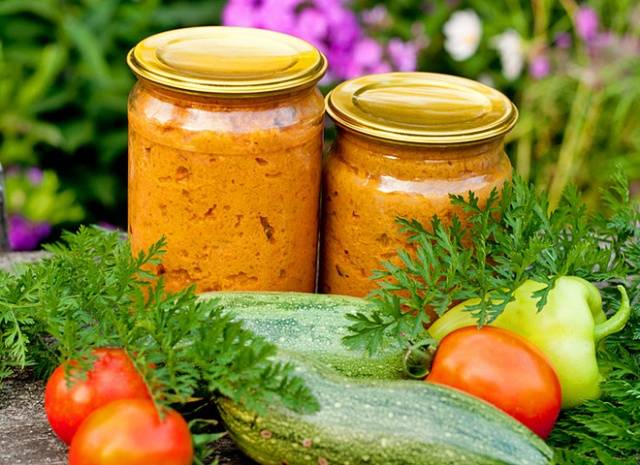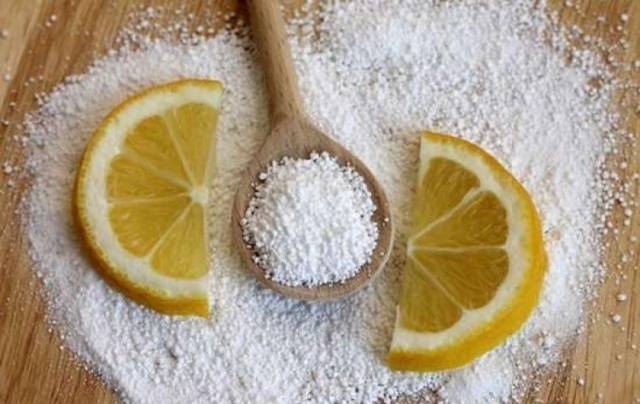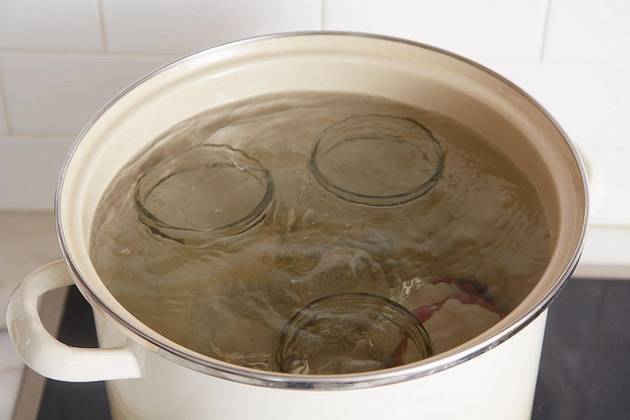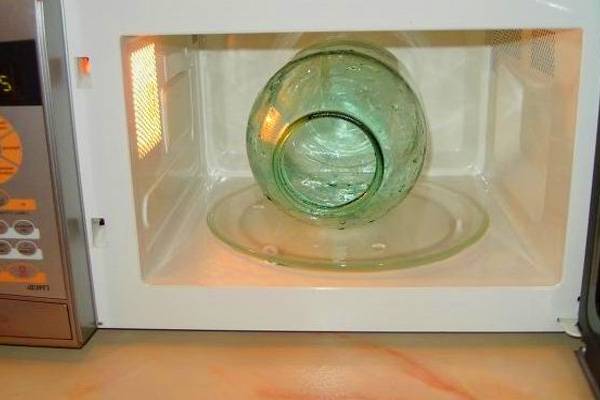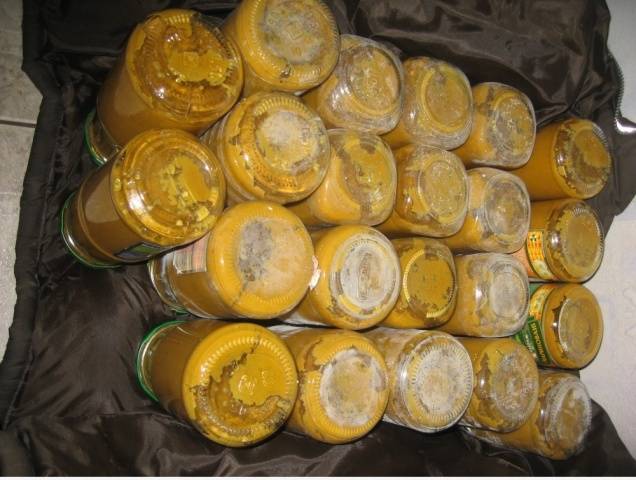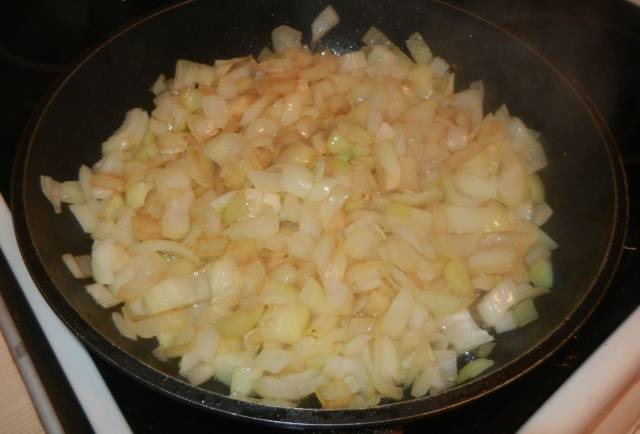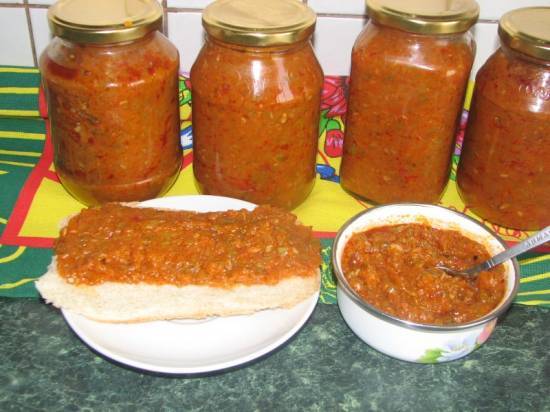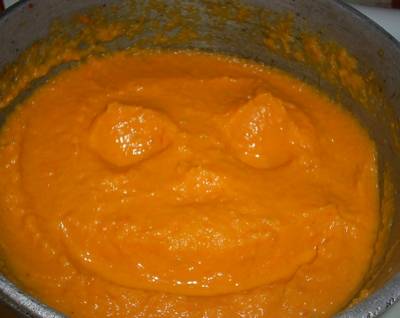Content
Zucchini caviar in our country has been very popular for more than half a century and for good reason, because this tasty and healthy dish made from zucchini was invented by Soviet technologists. In the distant Soviet times, zucchini caviar was a well-known delicacy that could be bought for a symbolic price in literally every grocery store. Times have changed now. While the variety in this product is impressive, its flavor profile leaves a lot to be desired. Therefore, any housewife tries to prepare this dish herself for the winter, using various recipes and applying a variety of culinary techniques and tricks in order to simplify her life and provide her family with delicious vitamin food for the cold season.
Experienced housewives know that when preparing canned food for the winter, it is difficult to do without sterilization. It is she who helps to keep the finished dishes in their original state, preventing them from spoiling. But how can she make life difficult, especially in hot weather. Therefore, many people prefer to contrive in different ways, but do without sterilizing the finished dish. Zucchini caviar for the winter without sterilization is prepared in several ways, and it is these recipes that will be discussed in this article.
Secrets of cooking without sterilization
So, the most common option for making caviar from zucchini, however, like any vegetable snack for the winter without sterilization, is to add natural preservatives to the dish, such as citric or acetic acid.
However, to be precise, it will not be possible to do without sterilization at all.
Themselves glass banks and the lids to them must be sterilized before filling with caviar in order to avoid "exploding" the cans. This can be done in different ways:
- on the stove;
- in the oven;
- in the microwave;
- in the airfryer.
Traditionally, jars are sterilized on a stove fire. To do this, they are either placed in a pot of boiling water for 5-10 minutes (half-liter and liter cans) or placed on a special stand placed on top of a pot of boiling water (the so-called steam sterilization).
An interesting and modern way is sterilizing cans in a microwave ovens. It greatly simplifies this procedure. Water is poured into well-washed cans in a layer of several centimeters and cans of water are placed in the microwave at maximum power. It is enough to sterilize jars of 0.5 l and 1 l for 5 minutes. For larger cans, the time increases to 10 minutes.
Jars are sterilized in the same way in an airfryer, if your kitchen has this wonderful device.
But the addition of acid to the workpieces may not be to everyone's taste. If someone does not like the taste of caviar flavored with vinegar or citric acid, then there is a second option for making caviar from zucchini without sterilization. In this case, sterilization is replaced by prolonged heat treatment of the original products. Both cooking options are presented below.
It is only necessary to remember that if you are preparing zucchini caviar for storage for the winter without sterilization, the following rules must be observed:
- Jars and lids must be sterilized, but not in advance, but simultaneously with the preparation of the dish.
- Caviar is placed in jars only hot, even better in a boiling form.To do this, do not turn off the heating of the finished dish until the last can is filled.
- Filled cans are immediately rolled up with sterilized lids and turned upside down for self-sterilization.
- Ready-made cans should be immediately wrapped up and left in this form until they cool completely. Only the next day can they be transferred to a cool place without light for storage.
Squash caviar with added acid
All the ingredients for making zucchini caviar are pretty standard.
- Zucchini, washed and peeled and peeled, if necessary - 2 kg;
- Peeled carrots - 500 g;
- Bulgarian pepper, rid of seed chambers and tails - 500 g;
- Peeled onions - 500 g;
- Washed, scalded with boiling water and peeled tomatoes - 500 g;
- Garlic cloves - 3 pieces;
- Vegetable oil - 100 ml;
- Table vinegar 9% - 2 tbsp spoons or citric acid - 1 tsp;
- Sugar - 1 tbsp. the spoon;
- Salt, spices to taste.
Zucchini, bell peppers, tomatoes and carrots should be cut into small pieces. The onion is cut into small cubes.
Take a saucepan with a thick bottom or a cauldron and onions are first fried in well-heated oil in it until golden brown. Then tomatoes are added to it, and the mixture is fried for another 10 minutes.
The next step is to put the vegetables scrolled through a meat grinder into the pan, and with strong heating the vegetable mixture is quickly brought to a boil. After boiling, the heating decreases, the rest of the oil is added, and the caviar is stewed in this form for about 40 minutes. When the allotted time has passed, sugar, salt, spices and chopped garlic are added to the squash caviar.
After 10 minutes, citric acid or vinegar is added and the mixture is heated for about 5 minutes. Then it must be quickly spread out in sterilized jars, closed with lids and wrapped until it cools.
Zucchini caviar without vinegar and sterilization
To prepare caviar according to this recipe from 3 kg of zucchini, find:
- Tomatoes - 3000 g;
- Carrots - 2000 g;
- Onions - 1000 g;
- Garlic - 100 g;
- Bulgarian pepper - 500 g;
- Apples - 500 g;
- Vegetable oil - 1 tbsp. the spoon;
- Salt, sugar, pepper and other spices to taste.
This recipe does not include roasting vegetables. Therefore, everything is done very simply. Peeled vegetables and fruits are passed through a meat grinder and transferred to a saucepan with a thick bottom. Then vegetable oil is added to the vegetable mixture and everything is stewed over low heat for 2.5 - 3 hours, with occasional stirring, until the caviar becomes quite thick.
Then spices, salt and sugar are added to it, everything is mixed and, without removing from the heat, the contents of the pan begin to be put into prepared sterilized jars. Zucchini caviar for the winter is ready without sterilization.
There are a great many recipes for making squash caviar. Try and choose from them those that are not only tasty and healthy, but also suit you according to the cooking conditions.
